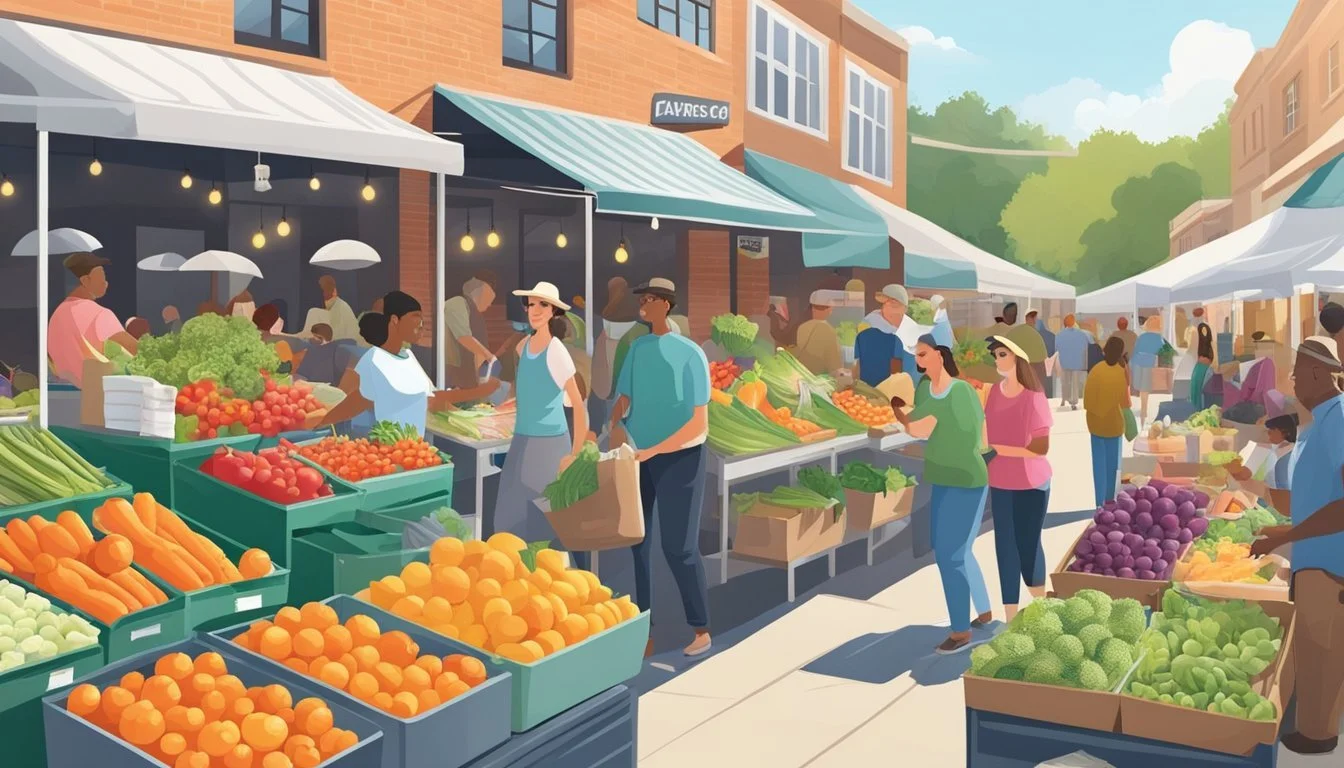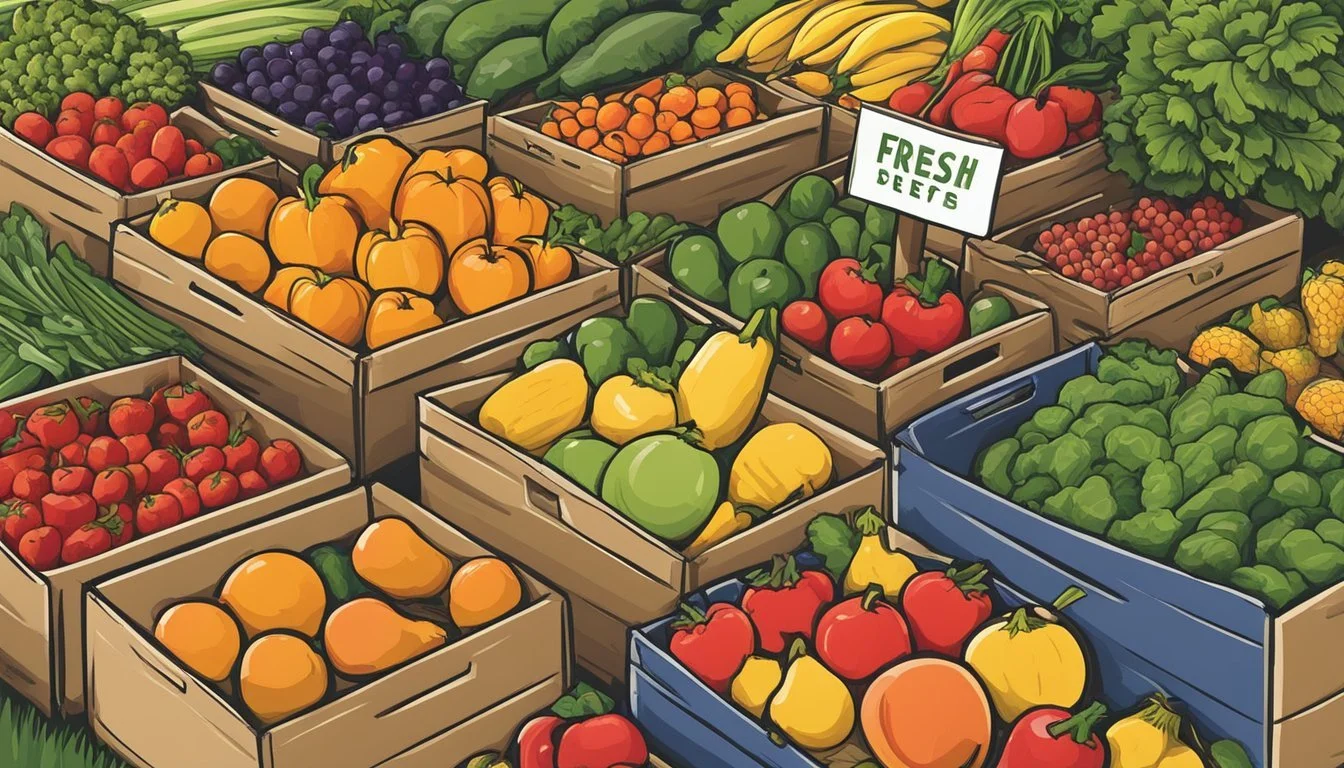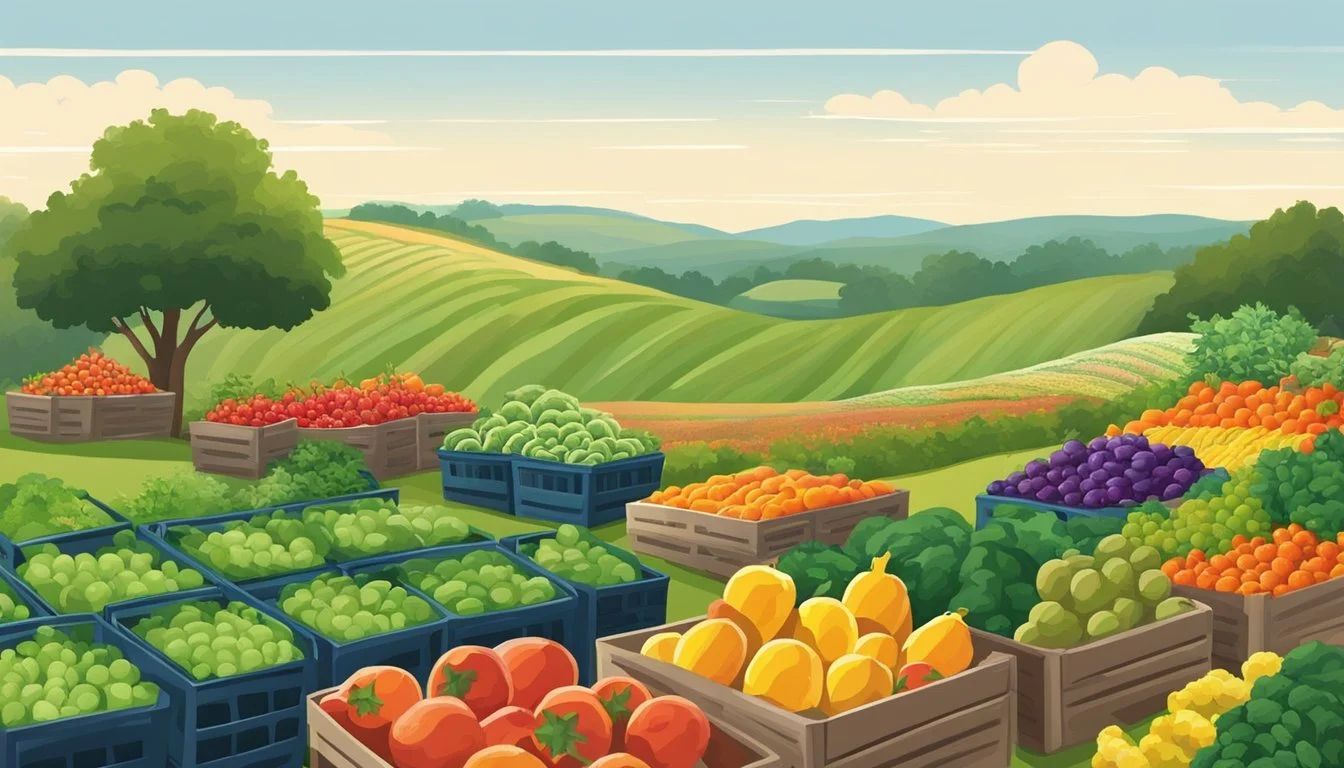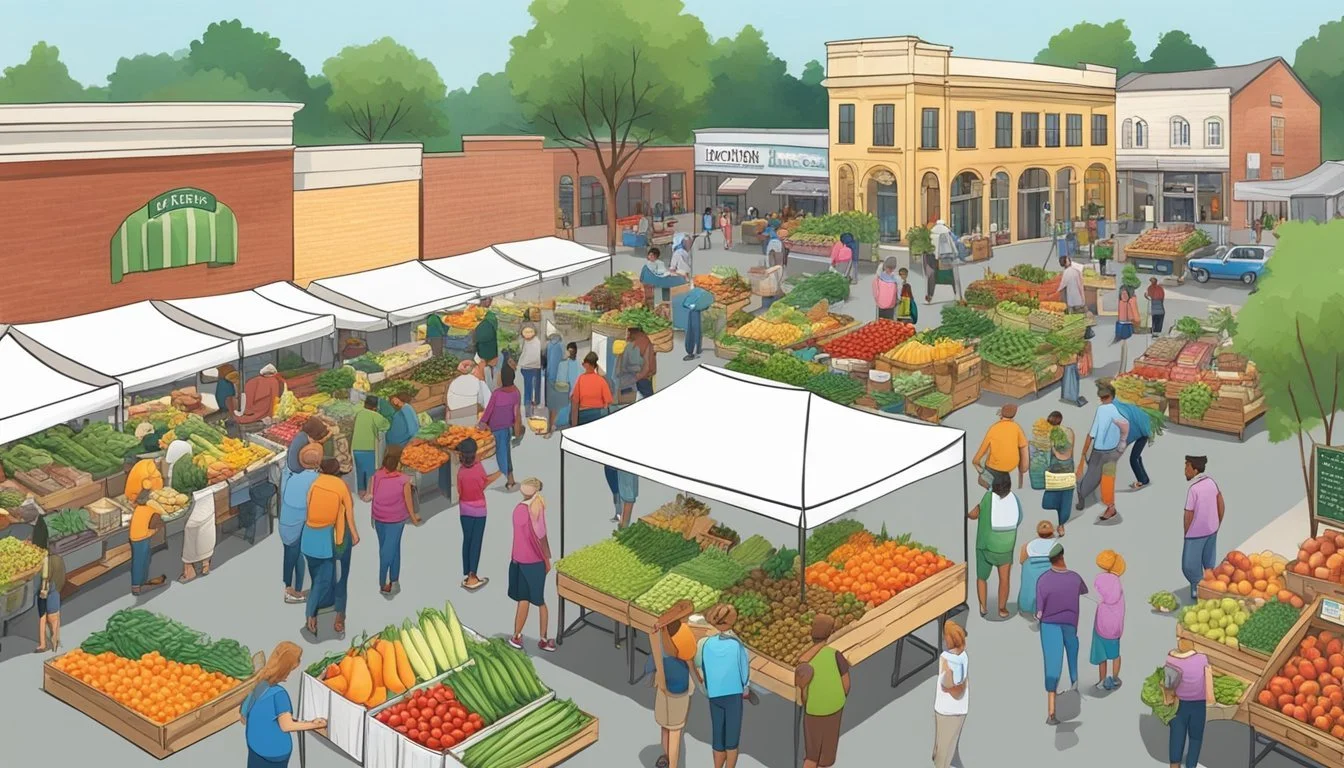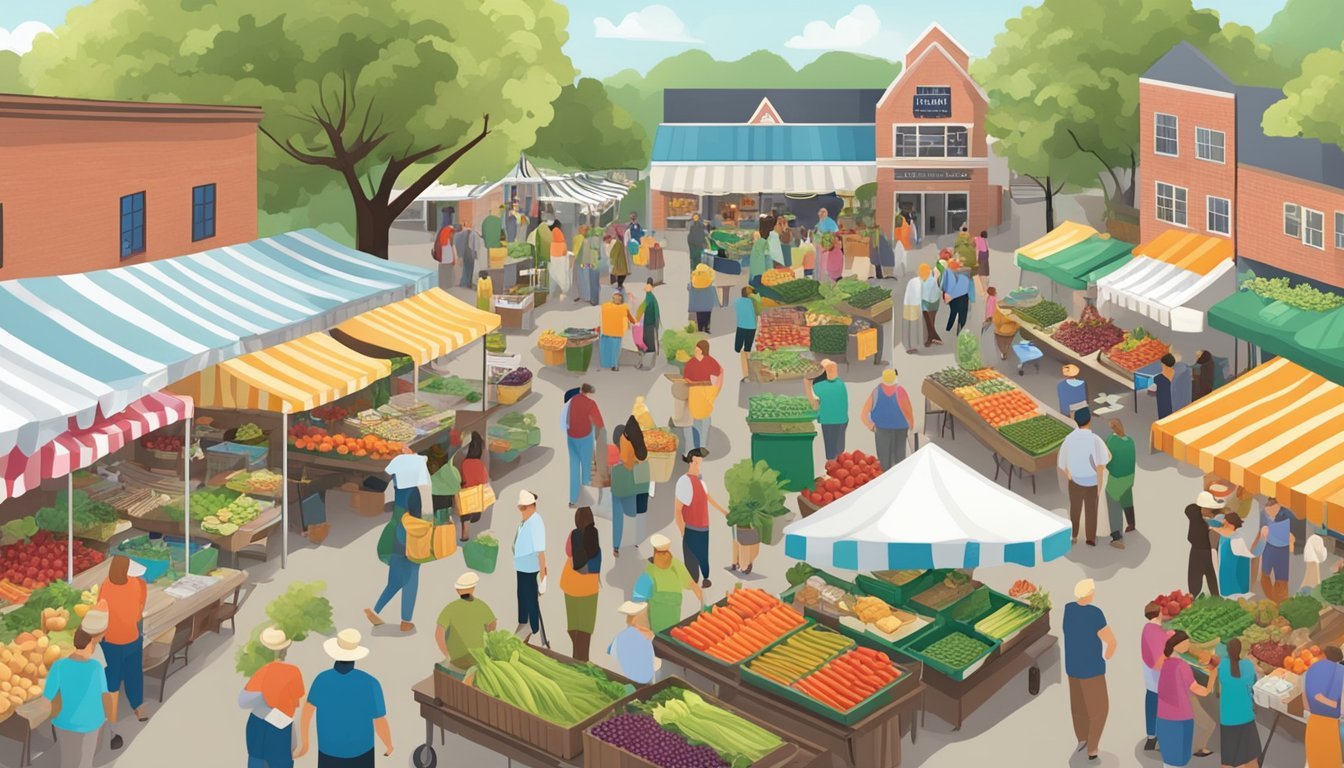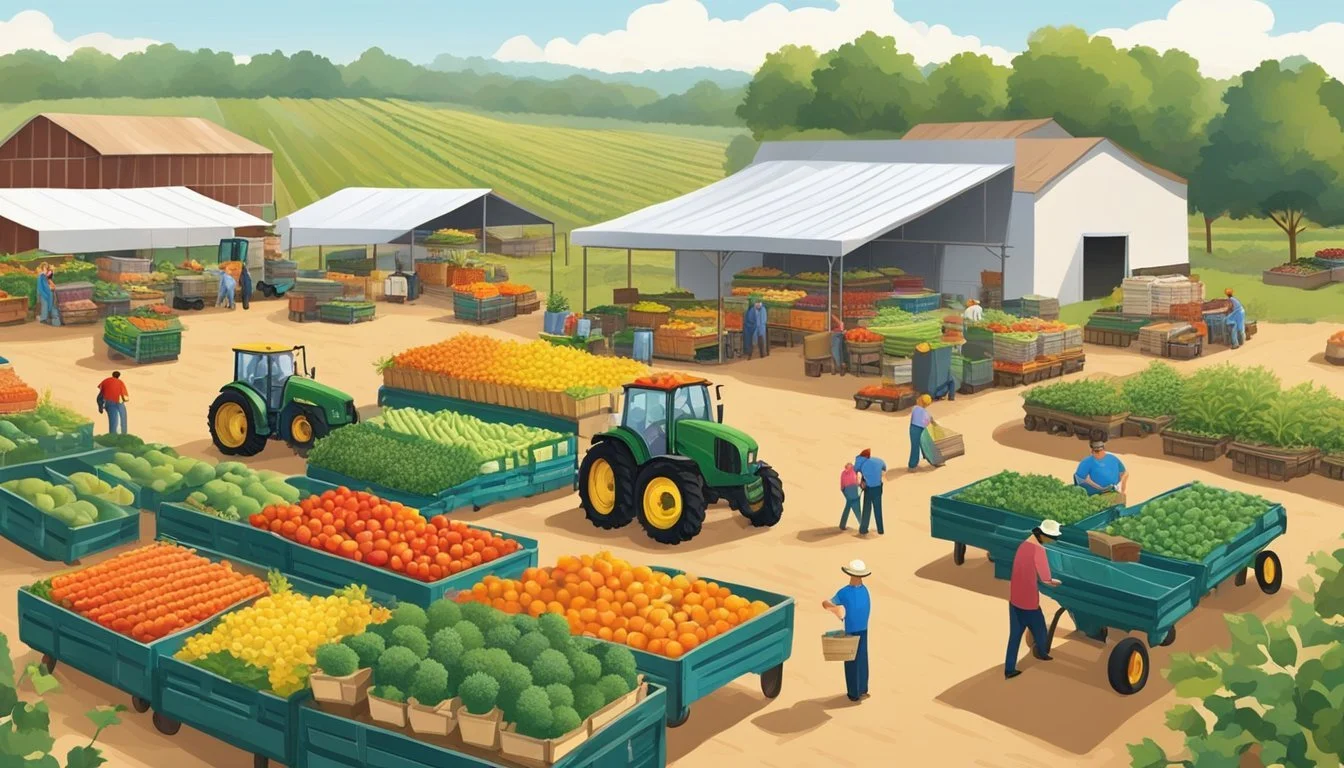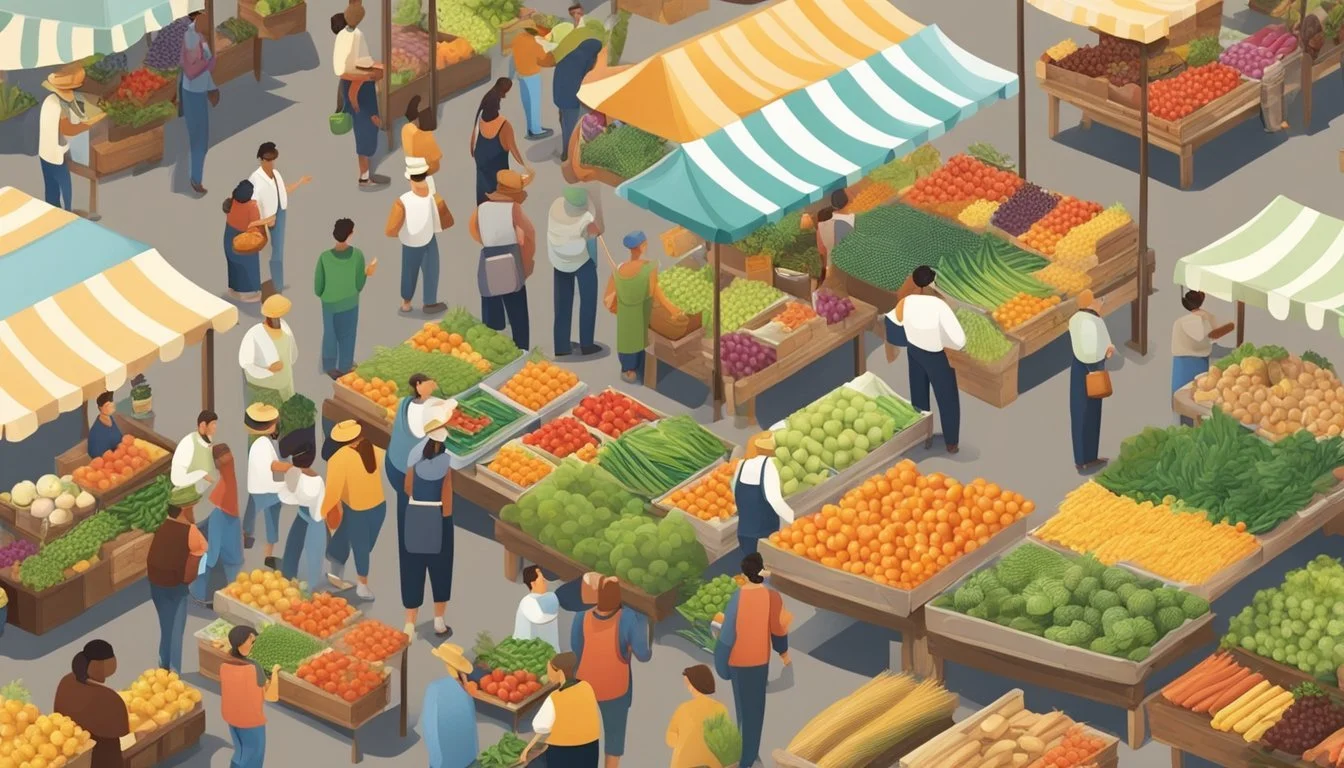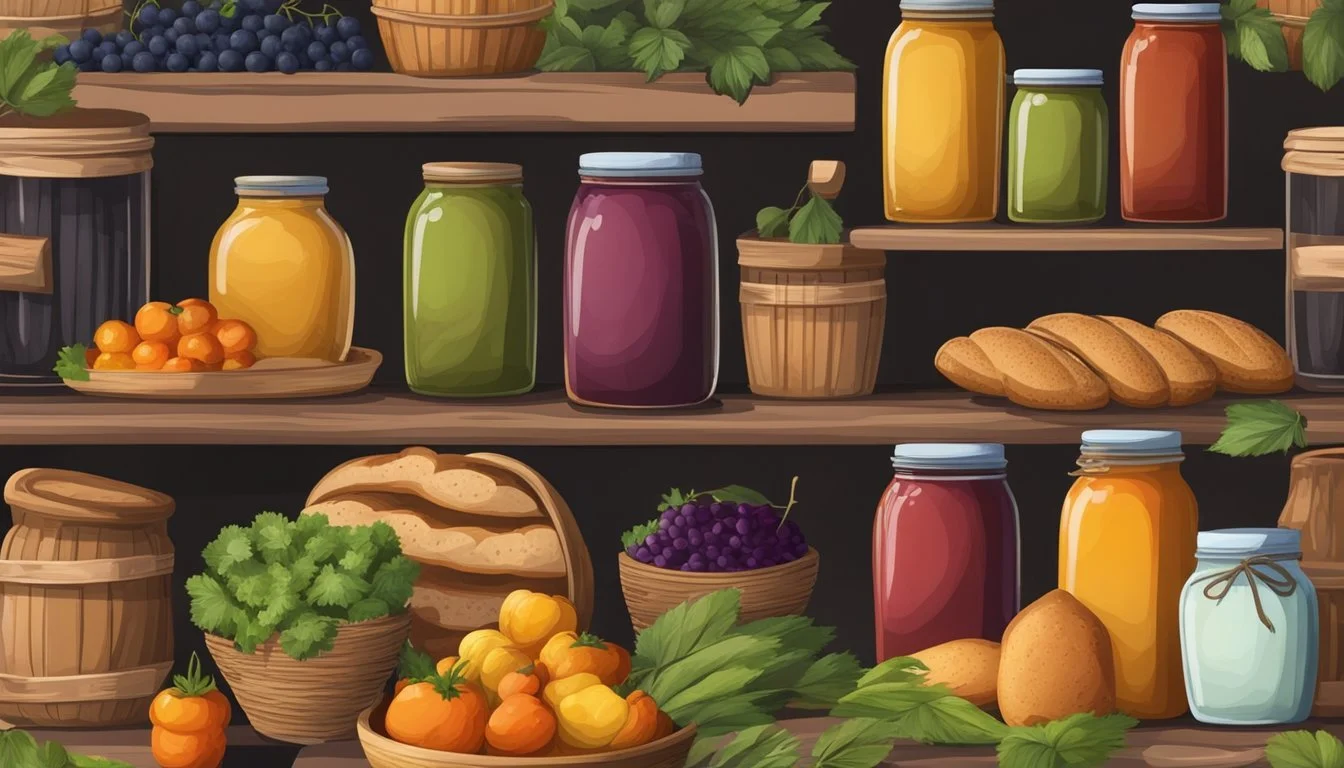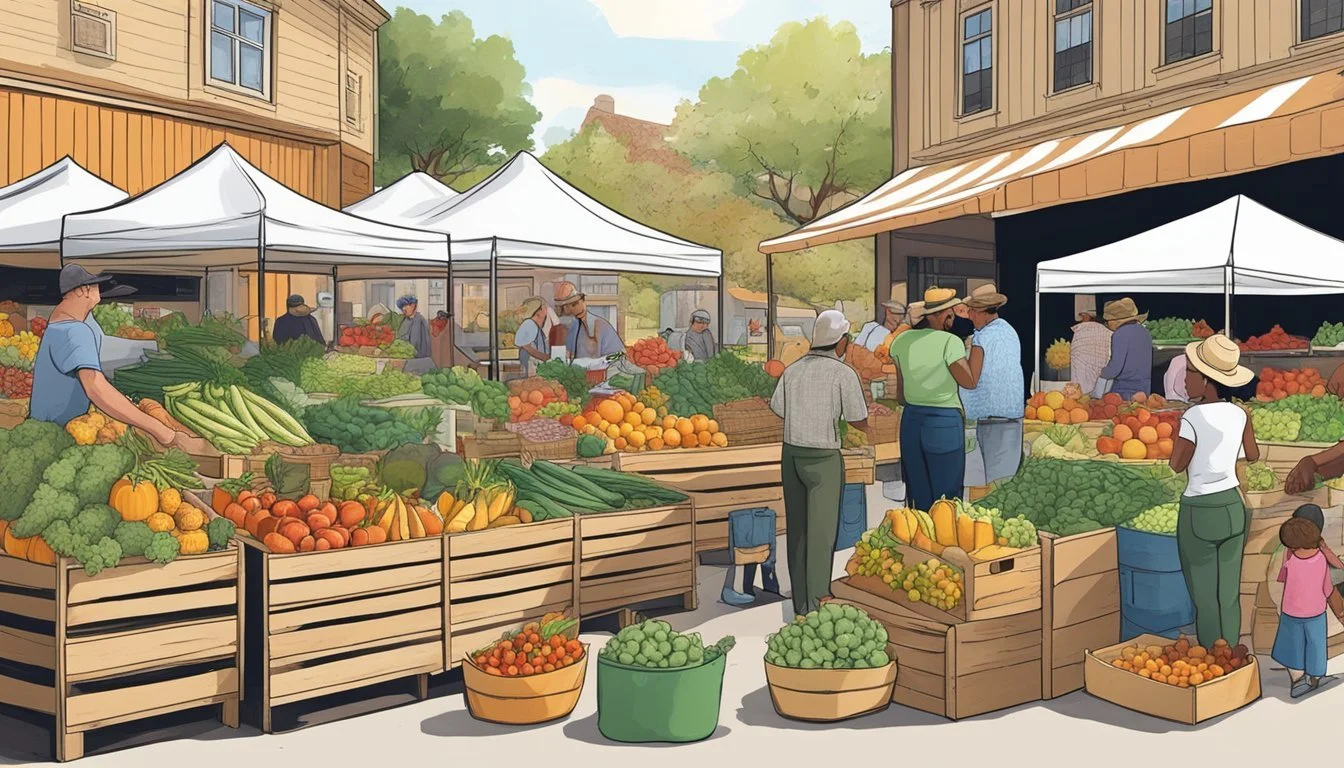Community Supported Agriculture (CSA) in Tyler, TX
Benefits and How to Join
Community Supported Agriculture (CSA) programs have established a foothold in Tyler, Texas, offering residents a way to purchase fresh, local, and seasonal food directly from farmers. In essence, CSAs in Tyler allow consumers to buy "shares" from local farms, which are typically comprised of a weekly or bi-weekly box of vegetables and possibly other farm products. This symbiotic relationship between local farmers and community members not only ensures the availability of fresh produce but also supports sustainable farming practices in the region.
Farmers in and around Tyler, such as The Cut Beef and Red Moon Farm, invite the community to engage in this mutually beneficial system. The model allows them to receive financial support at the start of the growing season, which can help cover upfront costs for seeds, equipment, and labor. In return, members of the CSA receive regular deliveries of high-quality, fresh produce that's often free from hormones, antibiotics, and pesticides.
Through the implementation of CSA programs, Tyler has become a beacon for those seeking to support local agriculture and consume responsibly. These programs underscore a commitment to health, community, and the environment, helping to reinforce the connection between the food on one's plate and the land from which it came.
Understanding CSA
Community Supported Agriculture in Tyler, TX, represents a local food system where consumers subscribe to the harvest of a specific farm or group of farms.
Fundamentals of CSA
Community Supported Agriculture (CSA) operates on a subscription model where members purchase a share of produce from local farms for the season. The essence of CSA is establishing a direct link between farmers and consumers. This relationship entails a degree of predictability for the farmer in terms of income and resources, as well as a season's worth of fresh, locally sourced produce for the consumer.
Benefits of Membership
Membership in a CSA offers numerous advantages for both the consumer and the farmer:
For Consumers:
Access to fresh, seasonal produce
Exposure to new types of vegetables and fruits
A closer connection to the source of their food
For Farmers:
Financial support at the beginning of the season, which aids in planning and farm operations
A secure market for their harvest
An opportunity to build community relationships
CSA Structure
The structure of a CSA in Tyler, TX typically involves:
Shares: Defined quantities of produce provided to members throughout the season.
Membership Duration: Usually spanning the growing season, approximately 20-22 weeks.
Distribution: Periodic pickup of produce at designated locations, sometimes with the option for home delivery.
Members support the farm operations by purchasing their memberships early in the year when farmers need funds the most. This model reduces waste, as farmers grow food aligned with the known demand of their shareholder members.
Local Farms Offering CSA
Community Supported Agriculture programs in Tyler, TX connect consumers directly with local farms, providing access to fresh, seasonal produce, and other farm products like meat and cheese. These partnerships foster community engagement and support local farmers.
Farm Profiles
The Cut Beef is renowned for providing natural, grass-fed, and grain-finished beef in Tyler. This farm places a strong emphasis on raising their cattle without hormones, antibiotics, or pesticides, ensuring a high-quality beef product that is responsibly sourced.
LocalHarvest offers a map to locate various CSA farms, which include a broad range of products from vegetables to fruits and even flowers. The details of each CSA can vary, but they all share a commitment to sustainable and local farming practices.
Subscription Options
Most farms offer seasonal subscriptions which allow customers to receive a box of assorted farm products on a weekly basis. These subscription packages are typically available as:
Full Share: Sufficient for a family, with a wide variety of products.
Half Share: Suitable for individuals or small families, offering a smaller assortment.
Farmers may offer customizable subscriptions and the option to include add-ons like eggs, cheese, and specialty meats.
Seasonal Availability
Seasonality defines the CSA offerings, providing members with the freshest produce during the harvesting season. Here's a general timeline of availability:
Spring: Offers a variety of greens, herbs, and early root vegetables.
Summer: Abundant with a diverse array of vegetables, fruits, and often flowers.
Fall: Provides a harvest of root vegetables and hearty greens suitable for cooler weather.
Winter: Some CSAs have winter shares with storage crops and greenhouse-grown produce.
Sustainable Farming Practices
In Tyler, TX, CSA involves a commitment to sustainable farming practices that focus on natural production and minimizing environmental impact. These methods are thoughtfully implemented in the cultivation of certified organic produce and the rearing of grass-fed livestock, ensuring the health of both consumers and the ecosystem.
Organic Agriculture
Farmers in Tyler embrace organic agriculture by cultivating produce without using synthetic pesticides, hormones, or antibiotics. Their gardens and vine crops are managed in accordance with USDA inspection standards to maintain soil health, conserve water, and provide consumers with certified organic options. These practices not only ensure that the produce is natural and wholesome but also promote biodiversity within the farm ecosystem.
Soil Health: Utilization of natural compost and non-synthetic fertilizers.
Water Conservation: Implementation of efficient irrigation systems to reduce water usage.
Crop Diversity: Cultivation of a variety of plants to reduce pests and diseases naturally.
Grass-Fed Livestock
The cattle ranches near Tyler prioritize grass-fed practices, allowing cattle to graze in open pastures and consume natural diets free from growth hormones and antibiotics. This method aligns with a sustainable and ethical approach to animal husbandry. Such practices yield not only healthier animal products but also support ecological balance by maintaining native grasslands.
Diet: Cattle are fed primarily on grass, promoting natural growth.
Health: Avoidance of hormones and antibiotics underscores a commitment to natural rearing methods.
Environmental Stewardship
Environmental stewardship is a cornerstone of CSA in Tyler, TX. Farmers take proactive steps to minimize the environmental impact of their operations. They engage in farming practices that support the long-term health of the land, ensuring that their gardens and vineyards sustainably contribute to the local food system.
Sustainable Techniques: Adoption of crop rotation, cover cropping, and conservation tillage.
Ecosystem Preservation: Efforts made to protect natural habitats and foster a balanced ecosystem.
Local Food System: Engagement in CSA reduces the carbon footprint by limiting transportation and processing of food.
Health and Nutrition
Community Supported Agriculture (CSA) programs in Tyler, TX, prioritize health and nutrition by providing access to fresh, seasonal produce. These initiatives support a health-conscious diet with high-quality, nutritious offerings.
Benefits of Fresh Produce
Tyler's CSA programs deliver a variety of fresh and seasonal produce which is essential for a healthy lifestyle. Fresh vegetables and fruits are not only richer in taste but also offer higher nutritional value due to minimal time from farm to table. They also reduce the need for preservatives often found in non-local produce. Participation in CSAs supports the consumption of a diverse range of high-quality vegetables and fruits pivotal for nutrition.
Vitamins and Minerals: Fresh produce from CSAs is loaded with essential vitamins and minerals.
Antioxidants: Seasonal items are often at their peak in flavor and nutrient content, containing antioxidants that are crucial for overall health.
Dietary Impact
Members of Tyler's CSA programs often experience a noticeable impact on their diet. Increased intake of nutritious produce directly correlates with better health outcomes and fosters food security for the community.
Increased Veggie Consumption: Involvement in a CSA is associated with higher consumption rates of vegetables, contributing to a balanced diet.
Healthy Eating Habits: CSA participants tend to incorporate more fresh fruits and vegetables into their daily meals, promoting better dietary habits.
Joining a CSA program aligns with recommended dietary guidelines, as it elevates the amount of whole, unprocessed foods in one's diet. This alignment is crucial for fostering long-term health and nutritional well-being.
Economic and Community Impact
Community Supported Agriculture (CSA) in Tyler, Texas, plays a pivotal role in bolstering the local agricultural scene, enhancing the local economic landscape, and fostering deeper community relationships through shared efforts in the food supply chain.
Support for Local Agriculture
CSA allows consumers to purchase seasonal produce directly from local farms, which provides a reliable income stream to farmers and helps them manage the business aspects of farming more efficiently. This support reinforces the competitiveness of Tyler's agricultural sector, ensuring that farms can continue their operations without relying solely on broader markets that may not prioritize local over mass-produced goods.
Advantages for Local Economy
By directly investing in local agriculture, businesses and consumers contribute to Tyler's economy. Funds that are circulated within the community can lead to more employment opportunities and economic advantages that stem from supporting independents rather than chains. The presence of CSA in the community encourages people to buy locally, keeping the money within the local economy and sometimes even stimulating the creation of allied local businesses, such as farm-to-table restaurants.
Building Community Connections
Tyler's CSA programs are more than economic agreements; they foster a sense of community. CSA members often report a higher level of satisfaction from their unique consumer-producer relationship. As they become more attuned to the cycles of local agriculture, they develop a stronger connection to their food sources, leading to a heightened sense of community. This relationship-based model promotes a mutual understanding and trust that goes beyond a typical marketplace transaction.
Operational Aspects of CSA
Community Supported Agriculture (CSA) operations in Tyler, TX, revolve around several components: effective membership management, a transparent payment and cost structure, and efficient distribution methods. Each aspect is crucial for sustaining the mutual relationship between farmers and their community members.
Membership Management
CSA farms manage memberships by tracking the number of shares available each season. This process ensures that the number of customers does not exceed the farm's yield capacity. They also maintain records for each customer to monitor membership commitments and the allocation of produce.
Customer Enrollment: Enroll customers for the season and maintain a database.
Shares Allocation:
Full Share: Suited for families or those wishing to have a steady supply of produce.
Half Share: Ideal for individuals or small households.
Payment and Costs
Payment for CSA memberships is often required upfront at the beginning of the growing season. This model aids farms in covering the initial costs incurred, such as purchasing seeds and managing water resources.
Payment Structure:
Upfront Subscription Fee: Covers entire season’s yield.
Installment Options: Some farms offer payment in installments for customer convenience.
Costs Involved: Funds are allocated for seeds, equipment, labor, and water management.
Distribution Methods
Distribution of produce in a CSA can take various forms, with delivery and pick-up being the most common methods. Farms must plan logistics carefully to ensure freshness of the produce while managing delivery costs effectively.
Pick-Up Points: Specify locations where members can collect their shares.
Farm Location: Allows members to visit and connect with the land.
Local Drop-Off Sites: Offers convenience for members near Tyler, TX.
Delivery Service: Some CSAs offer home delivery, adding to the cost but increasing convenience for the customer.
Challenges of CSA
In Tyler, Texas, Community Supported Agriculture faces distinct challenges primarily due to external factors such as weather conditions and yield variability. These challenges require strategic planning and resilience from local farmers.
Dealing with Weather
Weather greatly impacts CSA operations. In Tyler, unpredictable droughts, floods, or unseasonal temperatures can damage crops. Farmers need to ensure security throughout the season by employing water conservation in drought, proper drainage during floods, and suitable crop varieties that withstand diverse conditions. For instance, an unusually cold spring can delay planting, thereby affecting the harvest schedule and product availability to CSA members.
Understanding Yield Variability
Yield variability is another significant challenge for CSAs. Farmers must communicate effectively with their members about the possibility of fluctuating yields and the reasons behind them. This transparency can foster understanding when yields are low due to factors beyond control. Some strategies to manage variability include:
Diversification: Cultivating a wide range of crops to mitigate the risk of failure.
Succession Planting: Staggering planting dates to ensure a continuous harvest.
Through strategic planning and community support, CSAs can navigate these challenges.
Preparing and Storing CSA Goods
When handling CSA goods in Tyler, TX, the focus is on maintaining freshness and flavor. Proper storing techniques ensure longevity, while cooking with seasonal ingredients allows for the best taste and nutritional value.
Storage Tips
Fruit and Vegetables:
Leafy Greens: Store in airtight containers lined with paper towels; refrigerate.
Root Vegetables: Keep in a cool, dark place; remove tops before storing.
Tomatoes: Keep at room temperature away from sunlight.
Blueberries: Refrigerate in a container covered with a breathable lid.
Meat and Cheese:
Raw Meat (Turkey, Pork, etc.): Use vacuum seal or freezer bags; freeze if not using within a few days.
Cheese: Wrap in wax paper or cheese paper; refrigerate in a dedicated cheese drawer.
Cooking with Seasonal Ingredients
Seasonal Recipes: Utilize foods that are in season, like fresh blueberries for summer pies or honey-glazed roasted pork in the fall.
Cooking Techniques: Be versatile, grilling in warmer months and roasting or braising when it's cooler, to bring out the best in your CSA provisions.
Preserving Flavor: Quick blanching for vegetables or marinating meats before freezing can help lock in flavors.
Utilizing Honey: As a natural sweetener, honey can be used in numerous recipes to enhance the taste of seasonal produce.
Extending the CSA Experience
In Tyler, Texas, the Community Supported Agriculture model goes beyond the simple exchange of goods. It's an invitation to deepen the bond between local farmers and members of the community. These efforts not only enhance the satisfaction of CSA membership but also foster a stronger sense of community through nature and shared values.
Beyond the Subscription
Members of a CSA don't just receive a regular supply of fresh, local produce; they are part of an extended relationship with the farmers and the land. This connection can be magnified through various intentional actions:
Farm visits: By arranging times where members can visit, they experience the rhythms of the season and farming firsthand.
Workshops: Farmers can offer educational sessions on topics like sustainable practices or cooking with seasonal ingredients.
Special events: Hosting harvest festivals or potlucks can turn a subscription into a community gathering point.
Engagement and Feedback
Active engagement and open channels for feedback are critical to refining the CSA experience and ensuring the satisfaction of all parties involved. An efficient feedback system helps tailor the CSA to the community's needs and can be established through:
Regular surveys: This could be an annual or seasonal questionnaire about the produce selection, pickup logistics, or even recipe suggestions.
Social media groups: A dedicated online space for members to connect, share experiences, and provide prompt feedback to farmers.
Member meetings: Periodic gatherings where members can discuss the CSA structure and offer insights for the upcoming season.
By leveraging these engagement opportunities, CSA members consistently contribute to the program's evolution, resulting in a shared investment in local agriculture and communal well-being.

